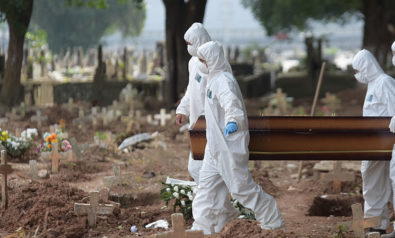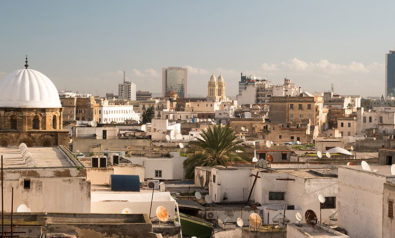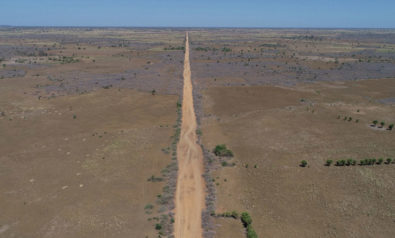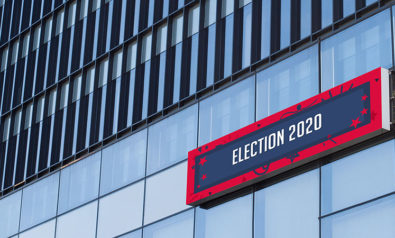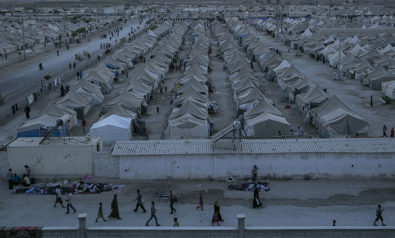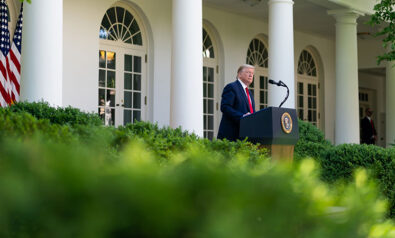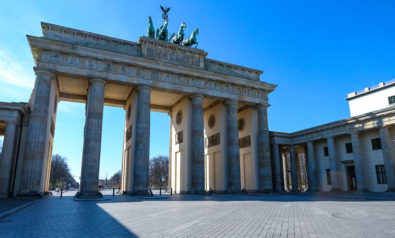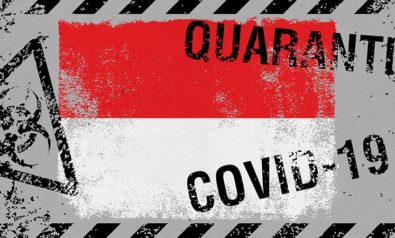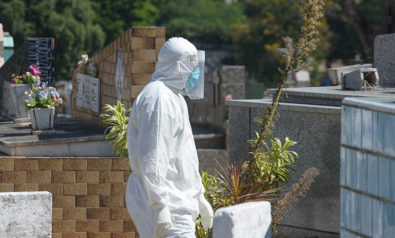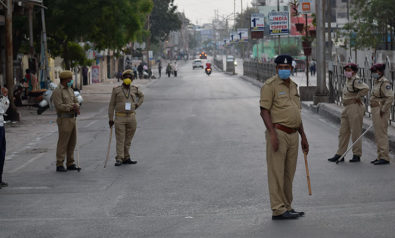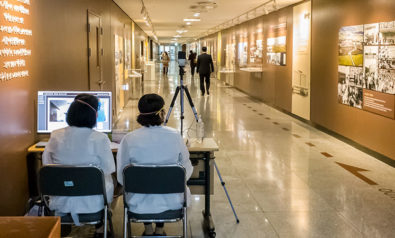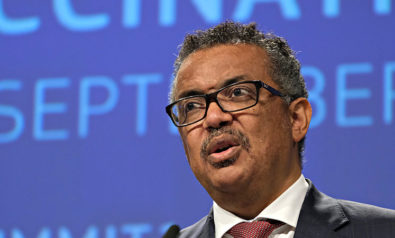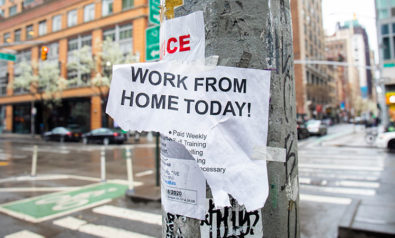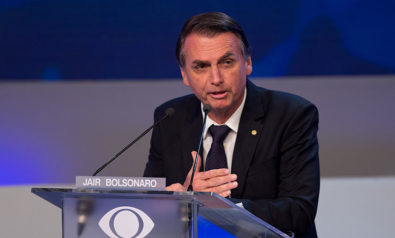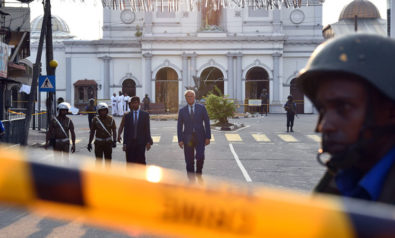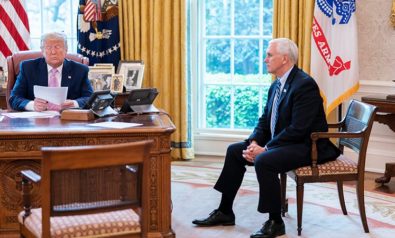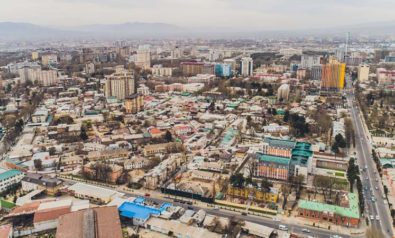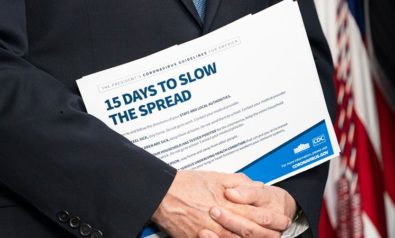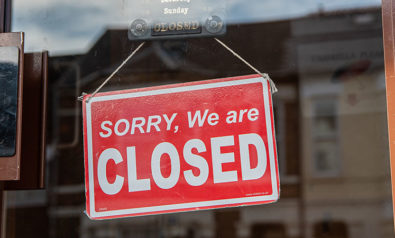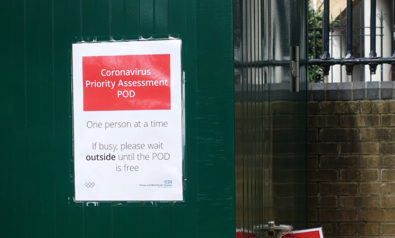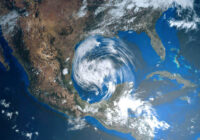The Saudi crown prince and de facto ruler, Mohammed bin Salman (MBS), finds himself in a difficult place, fighting three very different sorts of wars. The first — and the longest running — is the Saudi-led campaign against Houthi rebels in Yemen that on 25 March passed its fifth anniversary. The second, the war on COVID-19, was engaged approximately one month ago. The third, the oil price war with Russia, commenced a few weeks ago.
When contrasted with the confused and uncertain responses of the United Kingdom and the United States, the handling of the coronavirus crisis by the Saudi authorities has been exemplary. The kingdom took the first step on February 27 when it suspended visas for overseas umrah pilgrims. On March 2, the kingdom reported its first case, moving quickly as the numbers inexorably rose. Saudi Arabia closed schools and universities on March 9; on March 15, all international flights, both incoming and outgoing, were suspended, initially for a two-week period (that will no doubt be extended.)
The following day operations in many government agencies were suspended. Markets, shopping malls and restaurants were closed, with the latter still allowed to provide takeaway service. Pharmacies and grocery stores remain open, while people have been warned to isolate at home. On March 23, when the numbers had risen sharply to 562, the government announced a 21-day, 6 p.m. to 7 a.m. curfew, enforceable with fines and jail time.
Well Rehearsed
In part the Saudi response is due to the fact that the kingdom is already well rehearsed in dealing with dangerous viruses, most recently (and one that still affects the country) MERS- CoV, otherwise known as Middle East respiratory syndrome. It helps too that the kingdom is an authoritarian regime, run very tightly by Mohammed bin Salman. Images of empty streets in the capital Riyadh and a deserted Corniche in Jeddah attest to the simple truth that, unlike the UK, when the government so orders, the people have no choice but to obey. Even so, on the COVID-19 front, Mohammed bin Salman has acquitted himself well.
Yemen is another matter altogether. When MBS launched the war against the Houthi rebels on March 25, 2015, he was convinced he would achieve a quick win in a matter of a few weeks. The war grinds on, and the crown prince must share responsibility for the humanitarian disaster that has engulfed the people of Yemen. There is no doubt that he is seeking to find a way out of the quagmire which, in addition to the destruction inflicted upon the Arab world’s poorest country, is costing the Saudis several billion dollars a month to wage.
Recent efforts to end the war have floundered in large part because the Houthis show no inclination to stop. They continue to take territory, most recently the Al Jawf governorate, and to profit mightily from a black market war economy that includes the seizure and selling on of humanitarian food and medical aid. It doesn’t help that the United Arab Emirates has pursued a distinct agenda, supporting the Southern Transitional Council (STC) separatist movement, while the Saudis are left trying to shore up the internationally recognized, but widely discredited, government (IRG) of Abdrabbuh Mansur Hadi.
Hadi’s forces and the STC came to blows after the UAE announced its withdrawal from southern Yemen in August of last year. A hastily patched together deal, the Riyadh Agreement, signed in November and intended to end the IRG-STC fighting, has been honored only in the breach. Khalid bin Salman, the younger brother of MBS, was drafted in to try and find a way to extricate the Saudis from Yemen, but his efforts have achieved no noticeable results. The war continues with no end in sight and no end to the misery of the Yemeni people.
Russian Goad
Mohammed bin Salman’s third war — over oil prices with Russia — is one that he could have chosen to avoid, but, goaded by the Russians, MBS leaped into battle. Heading into the OPEC+ meeting in Vienna on March 5, the Saudis, nervously watching the price of oil slip as the coronavirus took its toll, were anxious that a production cut be enforced to protect their market share and halt the slide. When the next day the Russian energy minister, Alexander Novak, left the meeting after no agreement was reached, he threw out a line that angered the Saudis. “From April 1,” the minister said, “we are starting to work without minding the quotas or reductions which were in place earlier.” As far as Russia was concerned, any member could pump what they liked.
With apparently little thought for the consequences, MBS reacted to the Russian goad. The Saudis announced that from April 1 they would raise production by more than 2 million barrels a day, to 12 million, and slash prices by up to $10 a barrel. With the glut of oil on the world market increasing daily thanks to the economic downturn caused by the COVID-19 pandemic, the price of oil crashed. At the time of writing it was selling at around $25 a barrel. Just one month ago it was trading at $65. The Russians have gone on record stating they are happy with oil at $30. The Saudis need $80 a barrel. Some energy analysts are suggesting the price could go as low as $10 a barrel.
Meanwhile, Aramco shares have tumbled below their opening value as the world’s largest oil company cuts its capital expenditures. The Saudi government, facing a massive deficit, is cutting back too, just at the time when MBS urgently needs funds to get Vision 2030, already experiencing setbacks, back on track. The coronavirus has already taken a huge chunk out of the money the country garners from religious tourism, with umrah canceled and the hajj now threatened. The ongoing war in Yemen continues to drain the budget.
Three wars that are testing MBS to the limit. It may be that in the oil price war, the Russians blink first, and Khalid bin Salman may find a road to peace in Yemen, though the odds of either happening are high. Meanwhile, COVID-19 rampages on wrecking economies and threatening a world recession. Ironically, though MBS is making all the right moves to win the coronavirus battle in Saudi Arabia, the long-lingering effects of the virus on the global economy may cause him to lose the only war he has, thus far, effectively prosecuted.
*[This article was originally published by Arab Digest.]
The views expressed in this article are the author’s own and do not necessarily reflect Fair Observer’s editorial policy.
Support Fair Observer
We rely on your support for our independence, diversity and quality.
For more than 10 years, Fair Observer has been free, fair and independent. No billionaire owns us, no advertisers control us. We are a reader-supported nonprofit. Unlike many other publications, we keep our content free for readers regardless of where they live or whether they can afford to pay. We have no paywalls and no ads.
In the post-truth era of fake news, echo chambers and filter bubbles, we publish a plurality of perspectives from around the world. Anyone can publish with us, but everyone goes through a rigorous editorial process. So, you get fact-checked, well-reasoned content instead of noise.
We publish 2,500+ voices from 90+ countries. We also conduct education and training programs
on subjects ranging from digital media and journalism to writing and critical thinking. This
doesn’t come cheap. Servers, editors, trainers and web developers cost
money.
Please consider supporting us on a regular basis as a recurring donor or a
sustaining member.
Will you support FO’s journalism?
We rely on your support for our independence, diversity and quality.







